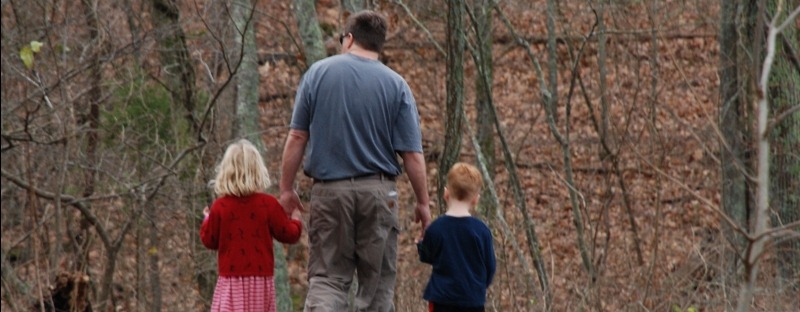- God Told Adam…
- The Generational Effect
- Covenant Maker
- To Lead the Family
- To Meet the Wife’s Needs/Wants
- Provoking To Good Works
- Giving Away the Bride
- Telling Their Children About God
- To Love His Wife

One of the biggest responsibilities that we have as fathers is to develop a passion for God in our children. That being said, the Bible has a lot to say on the topic.
That this may be a sign among you, [that] when your children ask [their fathers] in time to come, saying, What [mean] ye by these stones? – Joshua 4:6
And Gideon said unto him, Oh my Lord, if the LORD be with us, why then is all this befallen us? and where [be] all his miracles which our fathers told us of, saying, Did not the LORD bring us up from Egypt? but now the LORD hath forsaken us, and delivered us into the hands of the Midianites. – Judges 6:13
For he established a testimony in Jacob, and appointed a law in Israel, which he commanded our fathers, that they should make them known to their children: – Psalm 78:5
God was constantly having the children of Israel place markers so that they would remember what He had done. He then instructed the fathers to impart that knowledge in the house, by the way, etc. That’s why you see in the Joshua passage that children would ask their fathers– because they were supposed to know what happened.
We see in Judges that the fathers did impart the facts, but as I get older, I’m more aware that it’s not just the facts that our children need to know. They have to internalize the facts and develop a desire and passion for God that comes out of them. It’s not enough to know that Jonah was in the belly of a fish and lived, that time stood still, or that Jericho’s walls fell down with the children of Israel just walking around it.
Kids see spectacular things on television that are make-believe, why should they choose to follow another story just because you claim it is true? Certainly, they believe what they have seen easier than that which they have not. And therein lies our greatest resource– they need to see the Christian life lived in us. They need to see us passionate about Him. They need to see us dads depending upon God and seeing His blessing. They need to see the principles of the Word of God at work in their lives. If we make the truth unpalatable, we’ve failed in the task of imparting our faith in God to our children.
I’ve always wanted to see you do a series on something like this, sorry I haven’t been able to comment often, but I have been reading and enjoying!
Great point about going further than just “storying” when it comes to the Bible. Children need to see how it applies to them. That David was just an 8 (or so) year old when he faced down Goliath. God uses the weak to confound the strong. I’m more and more of the opinion that children need to not be so sheltered from the hurts of society. They need to be exposed in a careful way…to missions such as giving of their time to the nursing home, or serving dinner at a homeless shelter. Raising money for the missionary’s orphanage overseas. We need to “help” them to be less selfish by opening their eyes to the fact that there are children sleeping underground next to warm water pipes during winter’s cold. To appreciate what they have. To do what Jesus would do, to take the predicaments that Daniel, and Shadrack, Meshack and Abednigo faced and explore what a modern day situation like that might be like in their own lives and how they’d react. It’s so important to role-play the things that they might face and how God would want them to deal with it. So often parents lay down the law in the bad times, and forget how important it is to “talk” the “law” over during the good times. The one alone will produce a sneaky, manipulative child who does one thing while with you and another when you’re not looking. The other stands a better chance of ministering to the WHOLE child. Heart, mind and soul.
Anyway, that’s how I see it in my short tenure of being a mom! Works for me…
I believe it was yesterday morning in Sunday School where we talked about the fact that we need to be working on the character of the child so that they will make the Biblical decision even when you are not around. If you are the only arbiter of right and wrong, then it’s easy for the child to reason that when you’re not around they can do as they please. So, we need to be training them to make Biblically based decisions.
Then, turning the attention at us, our pastor talked about how we tend to lead different lives on Sunday than on the weekdays. If we want our kids to know that the Bible has something to say about our everyday life and not just the life we live on Sundays we have to be the same every day.